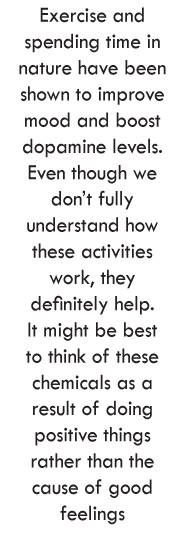Feeling good is super important for a happy life, and your brain chemistry and lifestyle choices play a big role in this. Here’s how to get a better grip on your mood.
Mental health matters
 Everyone’s been talking about mental health, especially since the pandemic has made a lot of us feel anxious, depressed, or just down. Even if you haven’t been directly affected by illness or loss, it’s been a tough time for everyone. The good news is that more people are taking mental health seriously, which means they’re starting to focus on what really matters and making healthier choices.
Everyone’s been talking about mental health, especially since the pandemic has made a lot of us feel anxious, depressed, or just down. Even if you haven’t been directly affected by illness or loss, it’s been a tough time for everyone. The good news is that more people are taking mental health seriously, which means they’re starting to focus on what really matters and making healthier choices.
Why optimism is key
Being optimistic — basically expecting good things in the future—can make a huge difference in your life. Tali Sharot, a professor of cognitive neuroscience, says optimism helps us stick with our goals and try new things. It makes us more likely to succeed because we’re motivated to put in the effort. Plus, research suggests that optimistic people tend to live longer. On the flip side, being pessimistic — believing that nothing will ever get better — can make it harder to stay motivated and can be a sign of depression.
Don’t overthink your mood
But here’s the catch: obsessing over your mood might make things worse. Iris Mauss, a psychology professor, says that constantly checking in on how happy you are can actually make you feel less happy. It’s like trying to force yourself to be cheerful — sometimes it just doesn’t work.
Balancing act
So, what should you do? Instead of fixating on your feelings, focus on what you can do to feel better. Research shows that certain activities can boost your mood and increase those feel-good chemicals in your brain.
Serotonin and dopamine
You’ve probably heard of serotonin and dopamine. These are brain chemicals linked to mood. Dopamine is tied to pleasure and motivation. Low dopamine can make you feel less motivated and less happy. On the other hand, serotonin’s role is more of a mystery, even though it’s the target of many antidepressants. Scientists know these chemicals affect mood, but the exact details are still being figured out.
Boosting mood naturally
Exercise and spending time in nature have been shown to improve mood and boost dopamine levels. Even though we don’t fully understand how these activities work, they definitely help. It might be best to think of these chemicals as a result of doing positive things rather than the cause of good feelings.
Managing stress
One of the best ways to stay positive is to manage stress. Stress makes your brain focus on negative stuff, which drags down your mood. Reducing stress through exercise, mindfulness, and socializing with friends can help keep your optimism levels up.
Gratitude
Another simple way to boost your mood is by practicing gratitude. Robert Emmons, a psychology professor, compares gratitude to fertilizer for the mind. It helps improve your overall well-being. Try jotting down something positive that happened each day—it’s a small but powerful habit that can make a big difference.
In short, staying positive involves balancing your focus between not stressing too much about your mood and actively engaging in activities that boost your mental well-being.






